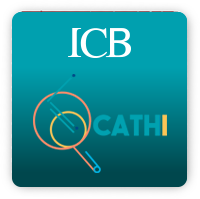Effect of Mindfulness on the Stress–Recovery Balance in Professional Soccer Players during the Competitive Season
Professional athletes are subjected to constant stress that often leads them to exceed their capacities and lose their homeostasis, which without a proper recovery program can lead to injury, chronic fatigue, and overtraining. This work examines the effect of six weeks of a psychological interventio...
में बचाया:
| अन्य लेखक: | , , , , |
|---|---|
| स्वरूप: | Artículo |
| भाषा: | English |
| प्रकाशित: |
2020
|
| विषय: | |
| ऑनलाइन पहुंच: | https://doi.org/10.3390/su12177091 https://www.mdpi.com/2071-1050/12/17/7091 |
| टैग : |
टैग जोड़ें
कोई टैग नहीं, इस रिकॉर्ड को टैग करने वाले पहले व्यक्ति बनें!
|
| सारांश: | Professional athletes are subjected to constant stress that often leads them to exceed their capacities and lose their homeostasis, which without a proper recovery program can lead to injury, chronic fatigue, and overtraining. This work examines the effect of six weeks of a psychological intervention called Mindful Sports Performance Enhancement (MSPE), on the stress–recovery balance in professional soccer players during a competitive season. Methods: The RESTQ-76 Sport psychometric questionnaire and heart rate variability (HRV) were used as psychometric and physiological evaluation methods. Under a longitudinal case–control study and having complied with bioethical procedures, 42 professional soccer players (22 control without treatment and 20 experimental), age 17 ± 1 year, weight 63 ± 11 kg, and height 172 ± 7 cm, were analyzed. Results: RESTQ-76 Sport increased the stress–recovery balance and global recovery (p < 0.5), but decreased global stress. The stress–recovery balance values measured by the nonlinear indicators of the HRV: SD1, SD2, SS, and S:PS, were not modified. Conclusions: Six weeks of MSPE improves the stress–recovery balance in third-division professional soccer players during the competitive season, reduces stress, and increases recovery. These positive effects were not observed in the nonlinear indicators of the HRV: SD1, SD2, SS, and S:PS. |
|---|
